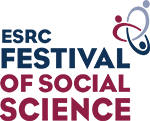Date/Time
12 November 2016
11:00 am - 3:00 pm
Location
The Whitworth Art Gallery
Oxford Road
Manchester
M15 6ER
Categories No Categories
 At this family-fun day, members of the Manchester Centre for Health Psychology introduced attendees to the psychological aspects of health and illness, including stopping smoking and being more active. Around 150 people attended the event, which was supported by student volunteers.
At this family-fun day, members of the Manchester Centre for Health Psychology introduced attendees to the psychological aspects of health and illness, including stopping smoking and being more active. Around 150 people attended the event, which was supported by student volunteers.
Rachael Hewitt, third year Undergraduate Psychology student, said: “The purpose of this event was to encourage the people of Manchester to think and talk about health, using activities based on topics like antibiotics, physical activity barriers and facilitators, and smoking (just to name a few). Each activity introduced psychology research and theory to attendees. I volunteered on the photo booth, which required people to consider their own positive and negative health behaviours and how they would go about changing their unhealthy habits, such as drinking too much alcohol, consuming too many Big Macs and living like a couch potato! It was then up to individuals to get creative and express their ideas using props and fancy dress before posing for the camera.
Overall, the event was a huge success! Over 150 people turned out to share their views, learn and play health-related games like ‘pin the fruit on the bowl’ and facial morphing. On a personal level, I believe the event will positively influence my studies. In particular, the knowledge I have gained will be invaluable when I come to construct my own behavioural change intervention as part of the Lifestyle and Behaviour Change module that I will undertake next semester. My experience volunteering at the event will also enhance my application for a place on the health psychology masters course at Manchester University, the next ste p towards becoming a qualified health psychologist.”
p towards becoming a qualified health psychologist.”
Aliya Ismangil, second year Undergraduate Psychology student, said: “The Manchester Centre for Health Psychology (MCHP) held a family event at the Whitworth Gallery on the last day of the festival. For that Saturday, Gallery 3 was taken over by whacky health-related games and even a photo booth! Techniques that health psychologists use to encourage people to change behaviour were demonstrated through a number of fun games. These games helped families to think about their health and wellbeing, as well as to share the work and research that MCHP do. There was a lot to get stuck in and do. A pin-the-fruit-in-the-bowl promoted healthy eating in family and pregnancy using several techniques including social support and demonstration of behaviour. The barriers and facilitators to physical activity were explored though a giant Snakes and Ladders and a very popular children’s ball pit.
I was stationed at the Communication with Health Professionals. We had three games for families to get involved and dress up as doctors. The first involved diagnosing silly diseases (ever had Ghostly Fever?) designed to demonstrate how hard it is to definitely determine a diagnosis through closed ‘Yes’ or ‘No’ questions. The second got individuals to pick a health behaviour and then saw their family member act as a Doctor to try and persuade them to change the health behaviour! It may come as no surprise, but this was no easy feat either and discussions about how health psychologists can aid this change were had. The last activity threw it back a few years and involved the board game Operation. Whilst kids (or adults) tried their best not to set the buzzer off whilst ‘performing surgery’, their surgical team had to act in one of many scenarios. Some were helpful, critical or noisy. This game showed that communication between health professionals is very important, accounting for most of the mistakes that happen in health care and the role  of health psychology in improving communication.
of health psychology in improving communication.
I learnt a great deal not just through getting to know the research that motivated the games but also in speaking to some of the 150 people that attended. Families, adults and professionals alike expressed genuine interest; I got the personal views of experienced medical professionals of communication and even learned of some research they had read! Although I’m not looking to get into research myself, this event was invaluable in exploring creative ways to communicate scientific research to the public – something I hope to do as a science writer and journalist.”
Contact: Dr Debbie Smith (debbie.smith-2@manchester.ac.uk)